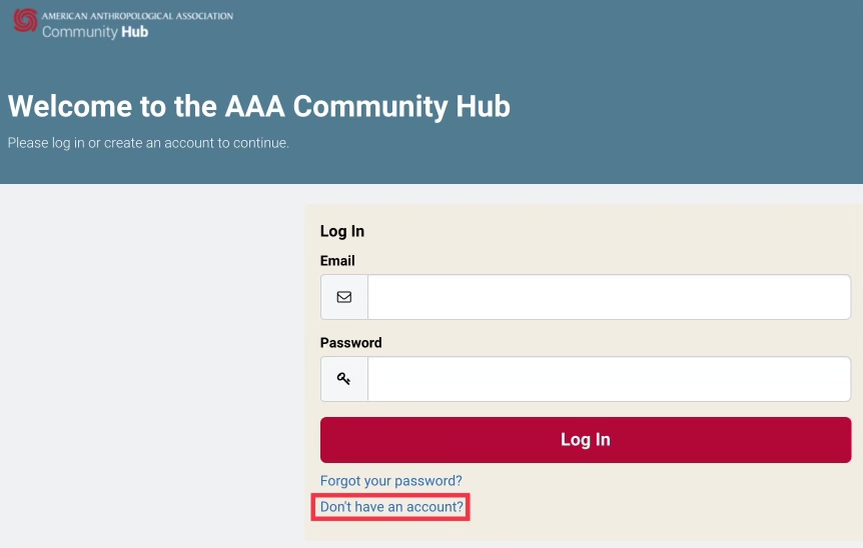Presented by the Association for Political and Legal Anthropology

Our fifth podcast episode explores how South African anthropology departments hire. Every country has its own traditions of hiring. There are country specific expectations of what genres belong in a job application, and what information matters the most. Different countries’ research funding infrastructure can also strongly shape how applicants are evaluated. In this podcast, we ask academics with considerable experience on hiring committees for an ethnographic account of how the South African hiring ritual unfolds. We address questions such as: How are job ads written? How are long lists decided? What and how can an applicant negotiate? The full episode transcript is also available.
Distributed in collaboration with the American Anthropological Association
South Africa Hiring Podcast Chapters
You may listen to the full podcast above or on the Apple podcast services. If you only want to listen to specific chapters, you can do so below.
Chapter One: Introduction
Chapter Two: The Job Ad
Chapter 3: The Application and the Short List
Chapter 4: The Job Talk and Interview
Chapter 5: The Decision
APLA Precariat Fund
We ask people who find listening to the podcast useful to contribute to an APLA fund to help precariat academics with emergency health care and moving costs. The money accumulated in this mutual aid fund will be distributed on a first-come, first-serve basis every summer. We are asking that you help support fellow scholars in need of financial help as they move between non-tenure track jobs, or deal with unexpected health costs. Your donations will help form a mutual aid society moderated by APLA and be greatly appreciated. Directions and a link are below.
Guests
Divine Fuh is Director of the Institute for Humanities Africa (HUMA) at the University of Cape Town, where he is also a lecturer in social anthropology. Before that, he was Head of the Publications and Dissemination Programme at the Council for the Development of Social Science Research in Africa CODESRIA from 2017–19. He joined UCT in 2012 from the University of Basel where he was a Researcher in the Chair for Research and Methodology at the Institute for Sociology. He taught briefly at the Universities of Basel, Cape Town, Western Cape, and Stellenbosch, and has been visiting lecturer at the Universities of Brasilia, Tokyo, and Gaston Berger. His research focuses on the politics of suffering and smiling, particularly on how urban youth seek ways of smiling in the midst of their suffering. He has researched Botswana, Cameroon, South Africa and Senegal, and his current work focuses on the political economy of Pan-African knowledge production. He was educated at the Universities of Buea, Botswana and Basel. He has been a visiting fellow at the Centre for Modern Oriental Studies in Berlin (ZMO) and guest at the African Studies Centre Leiden. Divine is Founding Managing Editor of Langaa Research and Publishing and has been Chair of the Council of Management of the Africa Book Collective. He is also current Co-Chair of the Global Africa Group of the World Universities Council.
Elena Moore is an Associate Professor in the Department of Sociology at the University of Cape Town. She is a sociologist specializing the sociology of the family with a Master’s degree in Applied Social Research and a PhD from Trinity College Dublin. Elena is currently working on a project on intergenerational relationships in South Africa. She recently authored a book on Divorce, Families and Emotion Work and co-authored a book in 2015 on customary marriage, divorce, and intestate succession. Her work has appeared in The Journal of Family Issues, Gender & Society, Families, Relationships and Societies, and The Journal of Southern African Studies. Her principal research interests lie in the field of personal life, kinship, gender, intergenerational relations, customary law, family law and policy, feminist theories, biographical methods, and mixed methods.
Hylton White is a social anthropologist with interests in critical theory, the anthropology of value, and the ethnography and history of social relations in southeast Africa. Hylton is currently a Senior Lecturer in Social Anthropology, University of the Witwatersrand. He has conducted ethnographic research for more than twenty years in northern KwaZulu-Natal, South Africa, focusing on the ways that people in rural communities make and think about social ties, especially in the context of their households and families. This has led him to publish work on issues such as kinship, the life course, architecture, ritual, customary law, and political authority. He is currently completing a book that examines how Zulu South Africans have navigated the complex ethics of keeping up proper relationships with ancestors in a post-apartheid context of far-reaching sociocultural change and profound economic insecurity. Hylton studied sociocultural anthropology at the University of Cape Town (BA Honours 1992) and at the University of Chicago (PhD 2001), then taught at the University of Chicago and at the New School for Social Research before joining the University of the Witwatersrand in Johannesburg in 2010. At Wits, he currently teaches courses in general anthropology and sociocultural theory, but has also taught on ritual, kinship, and economic anthropology. Hylton has served three terms as the Secretary of the Council for Anthropology Southern Africa, from 2011–16. He has served in the editorial boards of Anthropology Southern Africa, Cultural Anthropology, American Anthropologist, and Critical Historical Inquiry. He is currently editor at HAU Books.
Production Staff
This podcast was created by Elisabetta Carosi (sound editor); Jennifer Curtis (editor); Josh Babcock (production assistant and narrator); and Ilana Gershon (producer).
How to Donate to the Precariat Fund
AAA members, follow this link and login to your AAA account to donate:
https://my.americananthro.org/donatenow?pid=a1B8W00000D0r5HUAR
To ensure the donation is directed to the Precariat Fund, complete the final item on the donation page, “About Your Donation.”
Select the “Tribute Type” toggle menu and select “In Honor Of.” Then enter as the first name: “APLA Precariat” and last name “Fund.”

If you are not a member of AAA, you may also use this link, but rather than logging in, choose the “Don’t have an account?” link below the login button.

You will be directed to a page that asks you to supply your name and email address, and to create a password. Once you have logged in or completed the non-member form, below, you’ll reach the APLA donation page.

